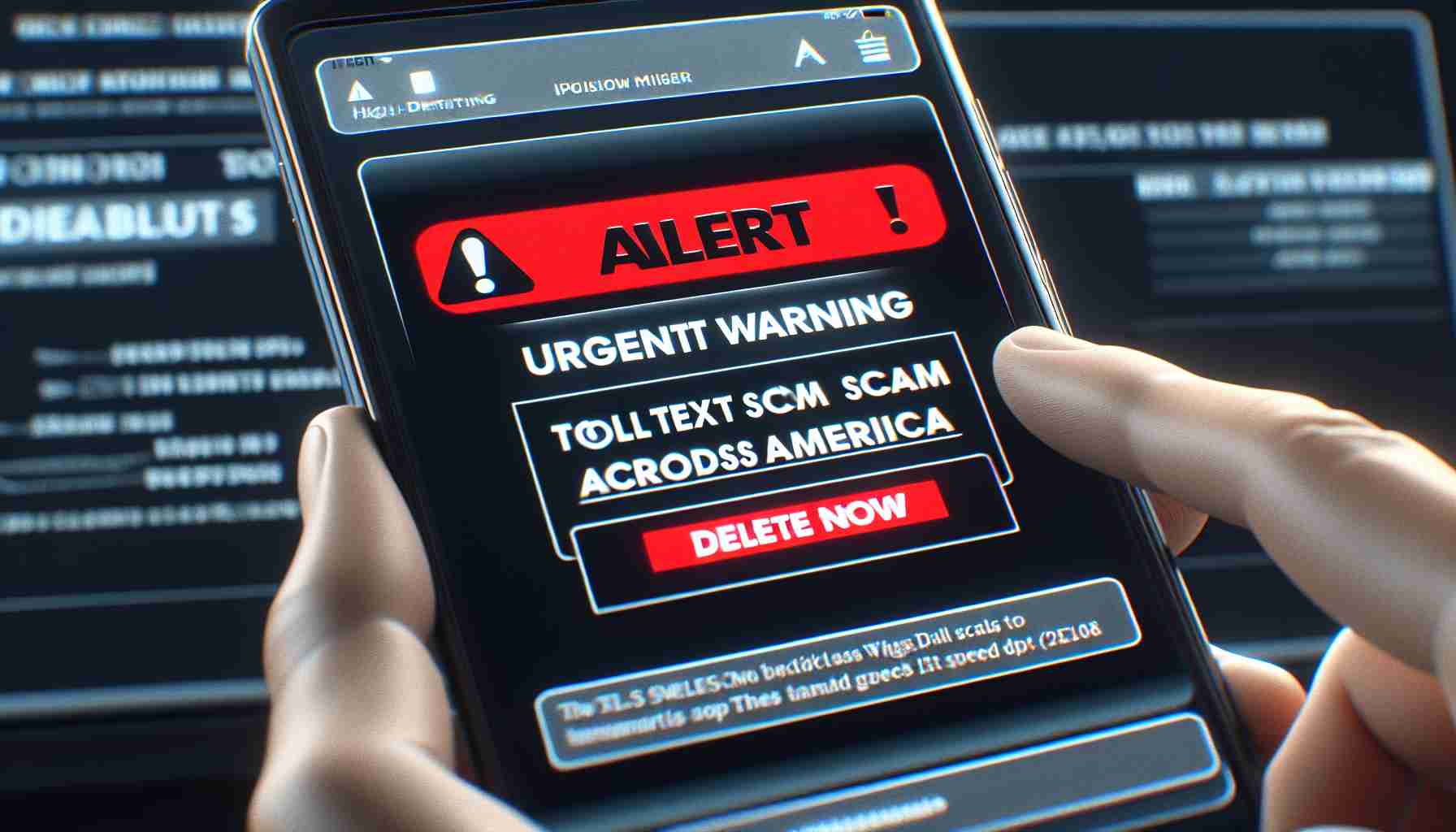Urgent Warning: Toll Text Scam Sweeps Across America—Delete Now
- Scams involving deceptive text messages about unpaid road tolls are spreading across the U.S., targeting unsuspecting individuals.
- The FBI and FTC urge recipients to delete these texts immediately and avoid engaging with them.
- These messages impersonate official tolling agencies, aiming to steal personal information and commit identity theft.
- The scam originated in March 2024 and has affected numerous states, including Florida, California, and Massachusetts.
- Cybercriminals utilize convincing phishing templates developed abroad, notably from China, to execute these scams.
- Authorities advise verifying toll claims through official channels and never clicking on any suspicious links.
- Immediate action includes securing personal data and disputing fraudulent charges if targeted by the scam.
- Staying informed and cautious is crucial to combat evolving cyber threats.
A new wave of scams is storming through the nation, targeting unsuspecting Americans via deceptive text messages. These fraudulent texts falsely claim you owe money for unpaid road tolls and urge you to click on a suspicious link. Both the FBI and FTC have issued stark warnings, urging people across the country to delete these messages immediately and avoid falling into the trap.
These messages masquerade as official tolling agencies but are actually sophisticated tactics by cybercriminals to steal your personal information and potentially your identity. The scam, originating in March 2024, has been reported in multiple states including Florida, California, and Massachusetts, reflecting the cunning adaptability of these cyber villains.
Imagine receiving a text from what appears to be your local toll agency, complete with official-looking detail on the toll amount owed. This is no small-town fraud but a sprawling, nationwide attack. Fueled by commercial phishing kits reportedly developed by foreign cybercriminals, primarily from China, these scams use templates that mimic official agencies, making them disturbingly convincing to the unsuspecting recipient.
City authorities like Great Falls have urgently alerted residents, reinforcing that these messages are scams. The FBI advises verifying any toll claims through legitimate toll service websites or by contacting their customer service—and never clicking suspicious links.
If you’ve been ensnared, immediate steps include securing your personal information and disputing unfamiliar charges. With the rise of these text scams, vigilance is essential. This cautionary tale serves as a reminder to stay alert and skeptical of unsolicited messages requesting payments.
As cyber threats evolve and proliferate, awareness remains our first line of defense.
Protect Yourself from the Latest Text Scam Targeting Americans
Understanding the New Wave of Text Message Scams
A concerning increase in text message scams has swept across the United States, mimicking official communications from tolling agencies and luring unsuspecting victims into revealing personal information. Originating in March 2024, this scam has been reported in several states like Florida, California, and Massachusetts.
How These Scams Operate
These scams use sophisticated phishing tactics, often originating from foreign cybercriminals, particularly China. Scammers deploy commercial phishing kits to create fake, official-looking messages that claim you owe money for unpaid road tolls. Each message includes a suspicious link, urging recipients to click and settle the supposed debt.
Why You Should Be Concerned
These texts are not just petty crime; they’re part of a large-scale attack aimed at stealing personal identity and financial information. Falling for these scams can lead to financial loss, identity theft, and compromise of your online security.
Immediate Actions if Targeted
If you receive one of these messages, remember:
– Do Not Click: Immediately delete the message without clicking on any links.
– Verify Claims: Check with official toll service websites or contact their customer service to verify any toll claims.
– Secure Your Information: If you’ve clicked the link or suspect foul play, take steps to secure your data:
– Change your passwords.
– Monitor your financial accounts for unauthorized charges.
– Report the scam to the authorities.
The Role of Law Enforcement and How They’re Fighting Back
Both the FBI and FTC are actively involved in tracking these scams and urging the public to be vigilant. They recommend reporting suspicious texts and spreading awareness about these malicious activities.
Future Outlook: Cybersecurity and Scam Prevention
With cyber threats becoming increasingly sophisticated, staying informed and cautious is crucial. Tech companies and cybersecurity professionals are constantly developing new tools to prevent scams and protect consumers, but your awareness is your best defense.
Useful Resources
For more information, you can visit websites like the FBI and the FTC for updates and guidelines on protecting yourself from such scams.
Conclusion: Stay Vigilant and Informed
As these scams continue to evolve, maintaining awareness and skepticism towards unsolicited messages claiming to be from official agencies is essential. Armed with information and caution, you can protect yourself from these fraudulent schemes.









